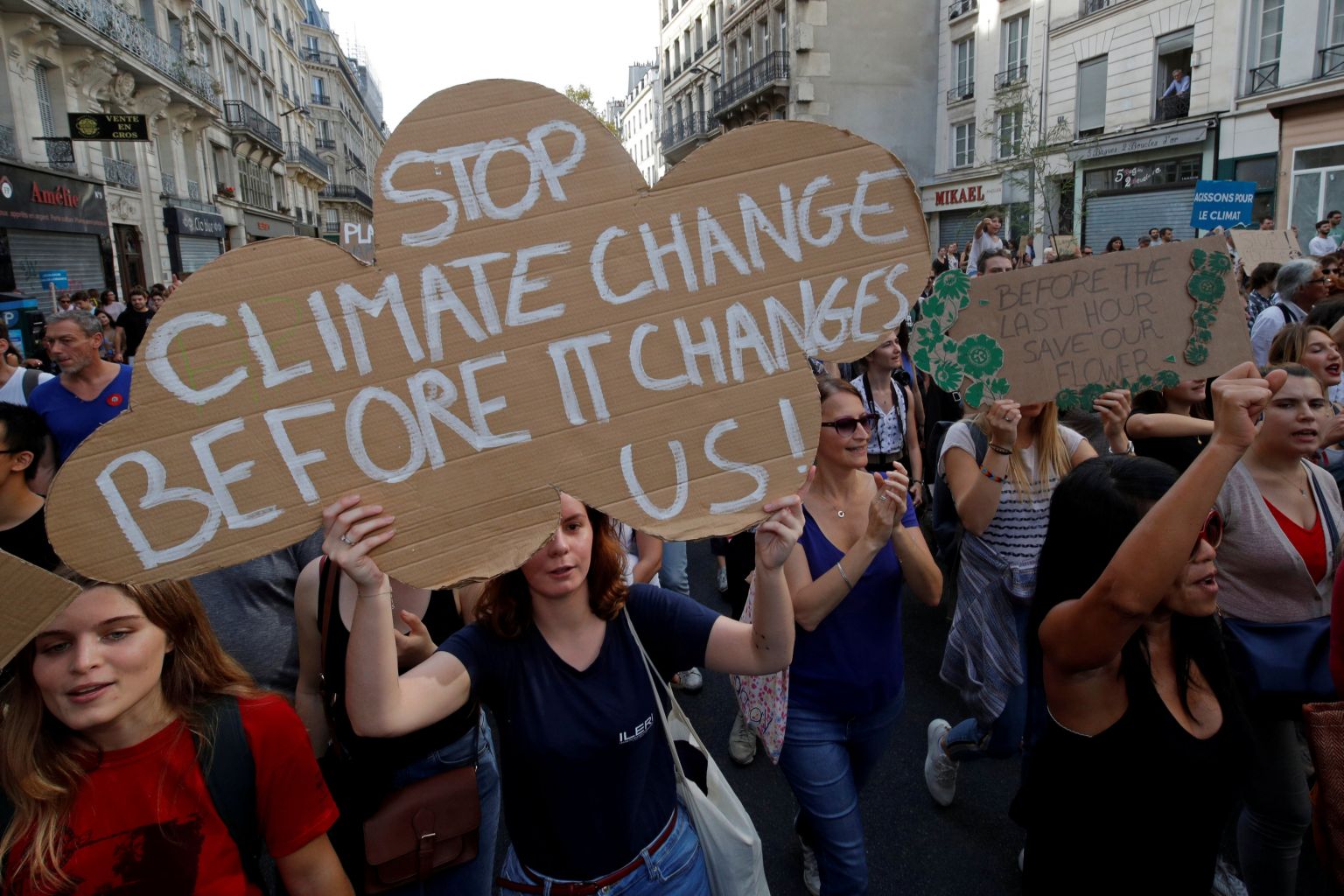G-20 summit shows strains over climate change
Sign up now: Get ST's newsletters delivered to your inbox

Protesters marching to urge politicians to act against climate change in Paris, France, on Oct 13, 2018.
PHOTO: REUTERS
BUENOS AIRES (AFP) - Strains over climate change marked the end of the Group of 20 (G-20) summit in Argentina on Saturday (Dec 1) as the United States celebrated what it called a victory for its holdout stance.
A final communique adopted at the summit in Argentina said all other G-20 members agreed to implement the "irreversible" Paris Agreement on climate change.
A paragraph in the statement noted: "The United States reiterates its decision to withdraw from the Paris Agreement."
Beyond entrenching their position, US officials said they saw growing dissent, even if the communique still resulted in a 19 versus 1 declaration backing the Paris climate pact.
The "coalition" against the US on climate change was beginning to fray, a senior White House official said, adding that several countries, including Turkey, Russia and Saudi Arabia, had balked at signing the document before finally backing it.
"We had a paragraph where we specifically preserved and explained our position for why we're withdrawing from the job-killing Paris Agreement," the official said on condition of anonymity, repeating President Donald Trump's denunciations of the accord as bad for US business interests.
"What you're starting to see is you're seeing a little bit of the coalition fraying. Countries like Turkey, like Saudi Arabia, like Russia might be second-guessing some of that... I think across the board it was really a resounding success," the official said.
Outside the US, which joined the Paris deal under former president Barack Obama, the biggest polluter not to have ratified the 2015 Paris Agreement is Russia, which ranks as the world's fifth largest greenhouse gas polluter. China and the US are the largest and second largest. Turkey and Iran have also failed to ratify.
A French source close to the negotiations said earlier that "a certain number of countries" were hesitating "to confirm their commitment to the Paris accord, so it was one of the big battles of the night to keep the pack of 19".
MOUNTING SIGNS OF CHANGING CLIMATE
The feud comes despite mounting signs of the impact of climate change, with a major US government report last week saying that the country's economy could be sliced by 10 per cent by the end of the century without major action.
Mr Thomas Bernes, senior fellow at the Centre for International Governance Innovation in Canada and a former G-20 negotiator, also said that objections from Turkey and the Saudis had contributed to holding up the final communique.
The statement stressed the need to respect different paces of economic development, as developing economies balk at going further on their Paris pledges.
"But in the end, it's still 19 v 1," said Mr Bernes.
He also said Brazilian far-right president-elect Jair Bolsonaro, who takes office on Jan 1, would be unlikely to help G-20 consensus on climate.
Mr Bolsonaro has threatened to follow Mr Trump's example and withdraw his country from the Paris Agreement.
The differences laid bare in Buenos Aires came a day before United Nations climate talks were to get underway on the other side of the world in the Polish city of Katowice.
The COP24 climate meeting is seeking to breathe new life into the pact, in which nations agreed to hold global warming to "well below" 2 deg C over pre-Industrial Revolution levels, and to strive for a lower limit of 1.5 deg C, if possible.


